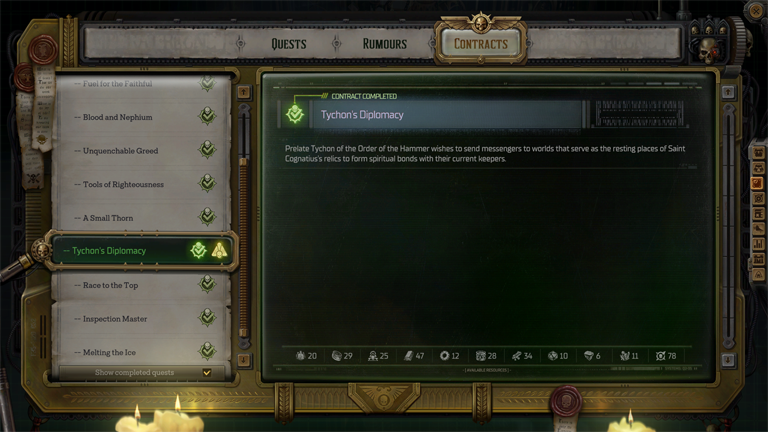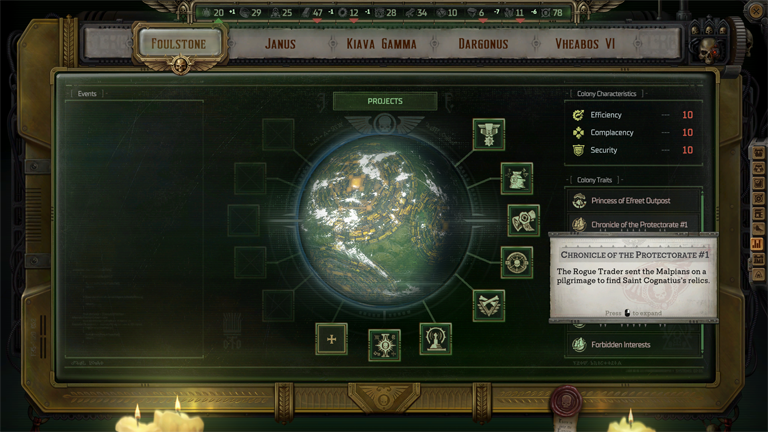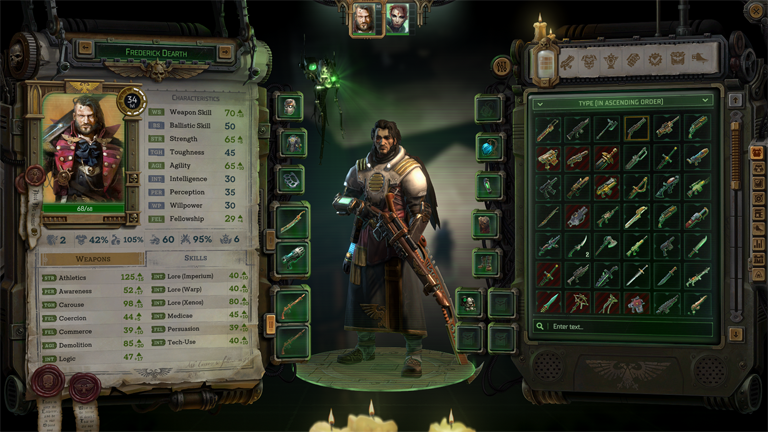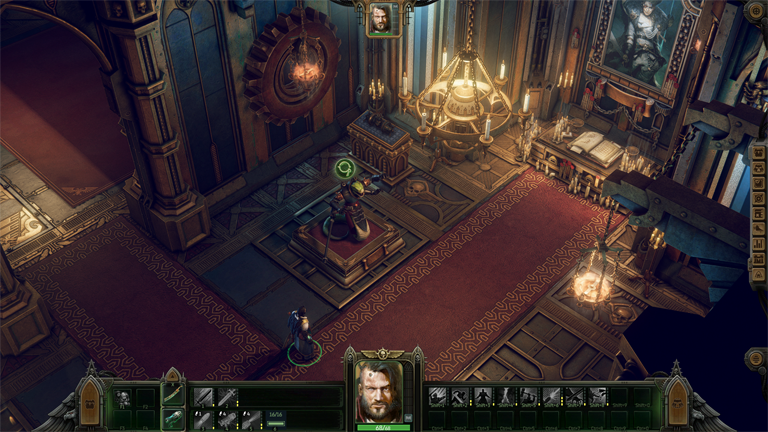Recently, I finished reading Musashi by Eiji Yoshikawa (a fun, if brick-y, read if you have the time) and there was a passage in there that stuck with me. Musashi's pupil complains, saying people disrespect Musashi and – skilled as he is – he ought to try and advertise himself more, to which Musashi replies by pointing at Mount Fuji and basically saying "the biggest mountain in Japan doesn't go around telling everybody how impressive it is: become great and people will notice."
It strikes me that Owlcat has unobtrusively adopted this approach, because Rogue Trader keeps on rockin' – and nobody had to tell me as much.
The main plot, like any good story, continues reeling you in and then – just when you have a firm grasp of the situation – yanking the carpet out from under you (it being central to the game's enjoyment, I don't wanna give too much away, but – yesterday – I got to Chapter 3, which couldn't be more of a Shadows of Amn homage if it took place underground); and the side activities remain fun and engaging, offering just the right mix of text vignettes and actual exploration/combat in some truly intetersting places.
I promised a deeper dive on contracts and colony management and I'm nothing if not a pig of my word.

Contracts, as it turns out, are fairly straightforward: you get one, you fulfill it, you get rewarded (either with an item, a Profit Factor boost or resources). There isn't really much to 'em – they're just another thing you can do once you have enough extractiums placed or have your colonies in productive-enough shape...
Colony management, on the other trotter, is a bit more involved. For starters, just getting access to the planets themselves involves completing a hefty quest (as is the case for Janus, Kiava Gamma, Dargonus and Vheabos Vi); or an extensive text vignette (where Foulstone is concerned). Once you take charge of your holdings, you control them via a panel that lets you complete projects which affect the functioning and output of a given colony.
Like contracts, projects come with requirements and rewards and figuring out what order to do them in so one project generates the resources you will need to start another is a fun little sideline that pits your patience and morality against garden-variety greed (as the "best" project rewards sometimes come from truly questionable projects).
Take Vheabos Vi, for example: as a prison colony, it is populated almost entirely by convicts whom you can source from 1) purges of intellectuals; 2) pirate raids; or 3) other prisons. Depending on which project you complete, you gain reputation with a different faction that has an interest in the planet (the clergy, pirates or the Imperial Navy, in that order); but while all three are kind of grim, one is a little more disturbing than the others (yes — that means you, creepy organized religion).

On top of projects, each colony also has periodic events that may require you to visit the world in question and resolve some moral dilemma. Events are handled via dialogue and usually present you with 3-4 solutions, each of which is justified by someone in your party. In a neat move, the results of each decision are outlined in the dialogue so you know exactly just what you're getting into...
Those aside, the game continues in the same vein I described in part one of the Rogue Trader review, splitting game-play time evenly between exploration (on foot and in space), combat (ditto), branching dialogue, skill checks, quests and similar RPG-staple goodness.

The one thing that continues to impress is how thorough Owlcat have been in constructing the narrative. Outside of the (recurring) warp jump battles aboard your ship, you won't find any recycled maps or overused assets here: each new location really is new – with different topography, unique opponents, fresh tactical scenarios to resolve and oodles of tasty narrative to ingest. I've said it before, but it bears repeating: in terms of the breadth of W40K lore covered, Rogue Trader is unlike any Games Workshop adaptation I've played before. Just when you think you've seen everything it has to offer, out comes something unexpected and new...
The narrative also remains heavy on choice and seeing this much of it in a game of such scale warms my porcine ticker. Being able to, say, resolve any quest in one of the three established ways (Dogmatic, Iconoclast or Heretical) and (sometimes) more or kick any core character from your party at any time (by saying as much or – more insidiously – having your Inquisition contact "get rid of them"); would have been impressive for a "little" production like Alpha Protocol or Tyranny... To see it in a 100+ hours behemoth with tens of thousands of lines of text and countless flags and variables is nothing if not awesome.

On top of the overall execution, little touches – like being able to recruit a background NPC from an insignificant side quest to your crew or planetary vignettes that can only be resolved once your ship is upgraded – really push home that, far from being a "mere" game, Rogue Trader was a labor of love for the Owlcats...
That said, the fact that a game of this magnitude has bugs should not come as a surprise. I haven't had it crash on me yet, but I've seen the Grand Strategist class' combat tactics fields persist into the ship's system map; I've had events not fire (effectively stalling the game) and combat turns whack out of sync (ditto)... Despite these hiccups, however, yesterday I stopped playing at 3:18 in the morning. Again. And something tells me tonight will not be any different...
I think that about covers the main features of the game, so – next week – I might ruminate on something else and save the (final) part of the review for when I actually finish the game.
Pig — out.
Pig Duly Mentions
- I've updated the Last Train Home review with impressions of the Legion Tales DLC; if you don't feel like backtracking, the short of it is the DLC cheapens the experience by turning it into "just a game" with optional objectives, alternate squads and a grand total of zero relation to the main game;
